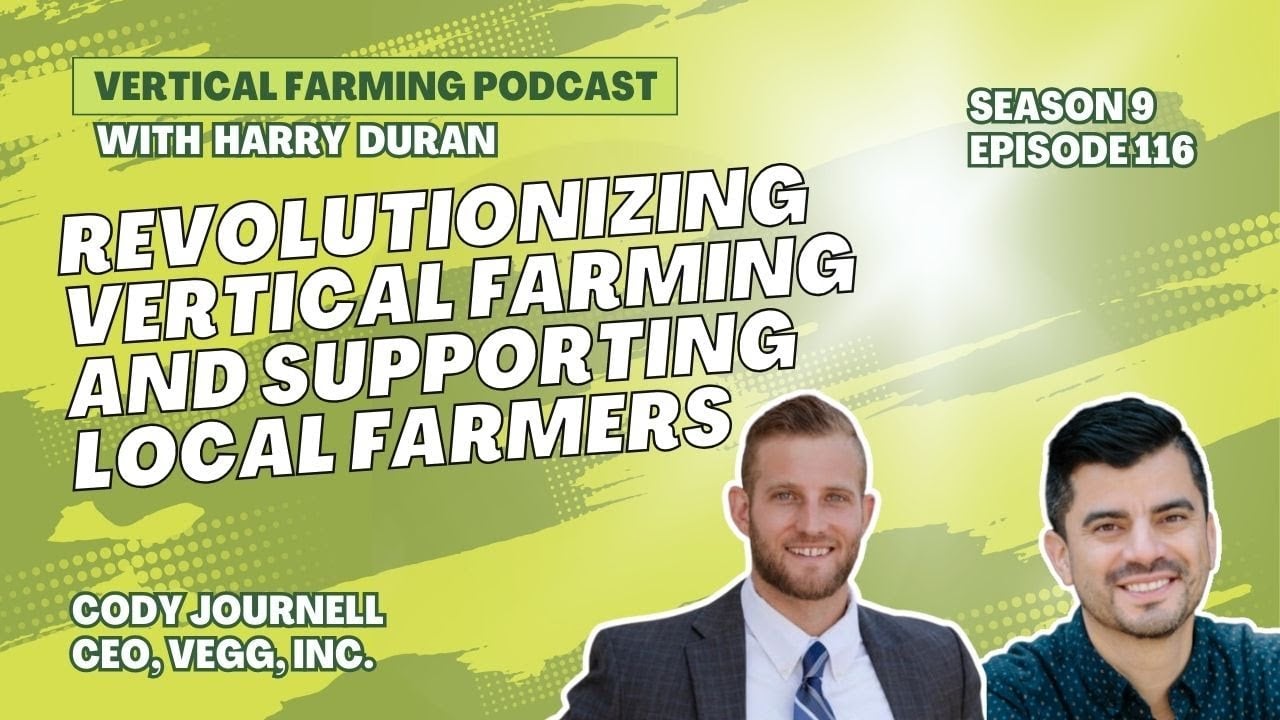Key Takeaways
- Cody Journell, Founder and CEO of VEG Inc., is repurposing vacant historic school buildings into vertical farming spaces.
- The model reduces capital barriers for small and mid-sized growers by leveraging real estate tax credits and leasable infrastructure.
- VEG Inc. provides flexible support for growers at different readiness levels, in partnership with CEA technology providers.
- The company’s pilot site in Pulaski, Virginia, integrates education, carbon capture technology, and regional food system planning.
- Future expansion across the East Coast will depend on tenant demand and successful facility operations.
Cody Journell and the Vision Behind VEG Inc.
Cody Journell, a Virginia-based real estate developer with agricultural roots, founded VEG Inc. to bridge redevelopment and controlled environment agriculture (CEA). Speaking on the Vertical Farming Podcast, Journell outlined how VEG Inc. converts unused public school buildings into vertical farming centers, providing affordable access to indoor growing space for early-stage and regional operators.
His idea emerged after witnessing the sale of his family’s farmland and recognizing the barriers many aspiring farmers face when entering the CEA market. Through VEG Inc., Journell is applying his expertise in adaptive reuse and historic tax credits to support new forms of rural development tied to agriculture.
Adaptive Reuse and Climate-Smart Infrastructure
The company's first facility in Pulaski, Virginia, is located in a decommissioned school spanning 30,000–40,000 square feet. By utilizing federal and state historic tax credits, VEG Inc. is able to lower real estate costs, which are then passed on to tenants through affordable leases.
Cody Journell explained that school buildings offer naturally segmented spaces, such as classrooms and gymnasiums, which can be converted into modular grow areas. This structure allows flexibility for different grower needs, from leafy greens to mushrooms to medicinal crops. VEG Inc. also supports clients through permitting, buildout, and regulatory processes, which can be time- and cost-intensive when launching a farm independently.
Supporting Growers at Every Stage
VEG Inc. caters to growers ranging from experienced operators to first-time farmers. Journell noted that many clients arrive without equipment or a finalized crop plan, prompting VEG Inc. to offer technical guidance through partners such as Cultivatd. In other cases, more experienced tenants simply need access to affordable, climate-controlled space to expand their operations.
Cody Journell emphasized that VEG Inc.’s role is not to operate farms directly but to create the conditions where tenants can succeed, whether through supporting infrastructure, shared resources like food safety programs, or connections to food hubs and logistics providers.
Energy Innovation and Regional Crop Strategies
Beyond infrastructure, VEG Inc. is testing carbon-negative technologies in collaboration with Mova Technologies. Backed by a DOE SBIR grant, the pilot project aims to pair direct air capture with indoor grow systems to evaluate energy use and CO₂ efficiency in CEA environments.
Journell also discussed the importance of crop selection, noting VEG Inc.’s focus on specialty or regionally underserved products, rather than competing with large-scale field agriculture. The company is also in conversations with institutions such as Virginia Tech to integrate workforce training and educational programming into future sites.


